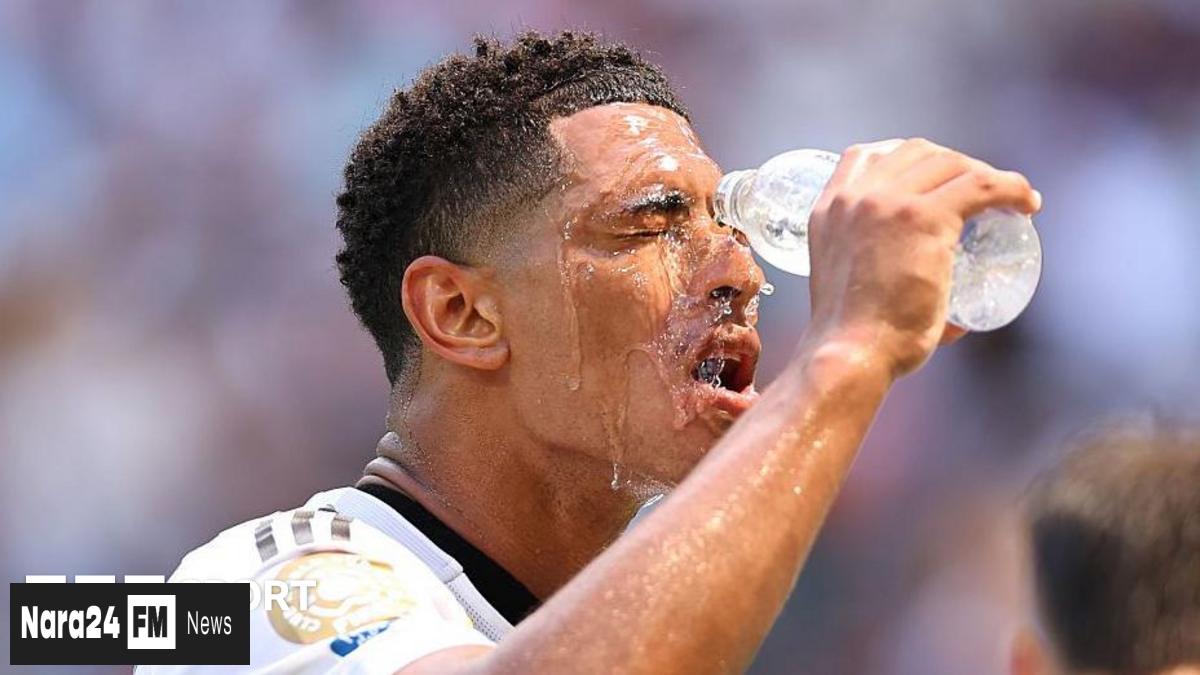
Crucial CAF Champions League Matchday 6: Quarter-Final Fates Hanging in the Balance
As the CAF Champions League group stage concludes, several teams face pivotal matches to secure quarter-final berths.
A leading expert suggests that FIFA should consider starting the World Cup final at 9 am due to concerns over extreme heat.

In light of the extreme weather conditions experienced during the Club World Cup in the United States, an expert is advocating for FIFA to reconsider the kick-off time for the men's World Cup final next year. Professor Mike Tipton, a renowned specialist on the impact of extreme temperatures on the human body, has proposed this measure to ensure the health and safety of players, officials, and spectators.
Tipton, who works with Team GB athletes including Jonny Brownlee, has been alarmed by the harsh conditions experienced by players during some matches at the Club World Cup in the US. He believes that if the same conditions recur during the 2026 World Cup, an early morning start would be the most suitable solution, even for the final match, despite the logistical challenges involved.
Many matches at the Club World Cup have been played under searing temperatures, highlighting the potential risks for FIFA's 2026 showpiece, which is set to take place in the same country during the same season. Last week saw the first major heatwave of the summer hit eastern North America, with dozens of people hospitalized due to heat-related illnesses. In New York on 24 June, the temperature peaked at 39°C, a record for June.
The MetLife Stadium, which is due to host eight matches, including the final, lacks a roof and offers limited shade for spectators. While kick-off times for the fixtures will not be confirmed until after the draw in December, insiders anticipate that matches in the eastern time zone will start at noon, 3 pm, 6 pm, and 9 pm local time, prioritizing European audiences, broadcasters, advertisers, and sponsors.
Tipton emphasizes that the health risks are not limited to the players but also extend to officials and spectators, many of whom are less fit. He warns that if the conditions persist, organizers could be taking on a significant responsibility by continuing to play games under such conditions, as the games might need to be drastically altered.
Fifpro, the global players' union, has called for a more flexible approach in response to the "wake-up call" of the Club World Cup. The union's medical director, Dr Vincent Gouttebarge, suggests that extended half-time breaks of 20 minutes in extreme heat could be considered to keep players' core temperatures within normal ranges. Fifpro also recommends introducing cooling breaks when the Wet Bulb Globe Temperature (WBGT) exceeds 28°C, and delaying matches when it exceeds 32°C.
While FIFA's guidelines currently rely on the WBGT, which combines temperature and humidity, Tipton and Fifpro believe that breaks should be introduced when the WBGT goes above 28°C, and matches delayed if it exceeds 32°C. According to this criteria, some matches during the Club World Cup, such as PSG vs Atletico Madrid and Chelsea vs ES Tunis, "should have been postponed to a cooler time of the day or rescheduled" if the guidelines were followed.
Fifpro general secretary Alex Phillips expressed satisfaction with FIFA's response to the heat concerns during the Club World Cup, but noted that it would have been better if the measures were put in place in advance. He highlighted the need for a discussion on the precautionary threshold for players and spectators, which could potentially delay kick-off times later in the day if pragmatic measures such as shading, hydration, and cooling are not sufficient to mitigate the risks.
Researchers from Queen's University Belfast have warned that the temperatures at 14 of the 16 stadiums being used for the 2026 World Cup could exceed potentially dangerous levels. The cities posing the greatest risk are Miami and Monterrey, which do not have air-conditioned stadiums. While Dallas and Houston have cooling systems, the report still raises concerns for spectators if games are played in the afternoon. Significantly, the report also suggests avoiding afternoon games in New York, along with Kansas City, Boston, and Philadelphia.
Comments (0)
Leave a Comment
Be the first to comment on this article!